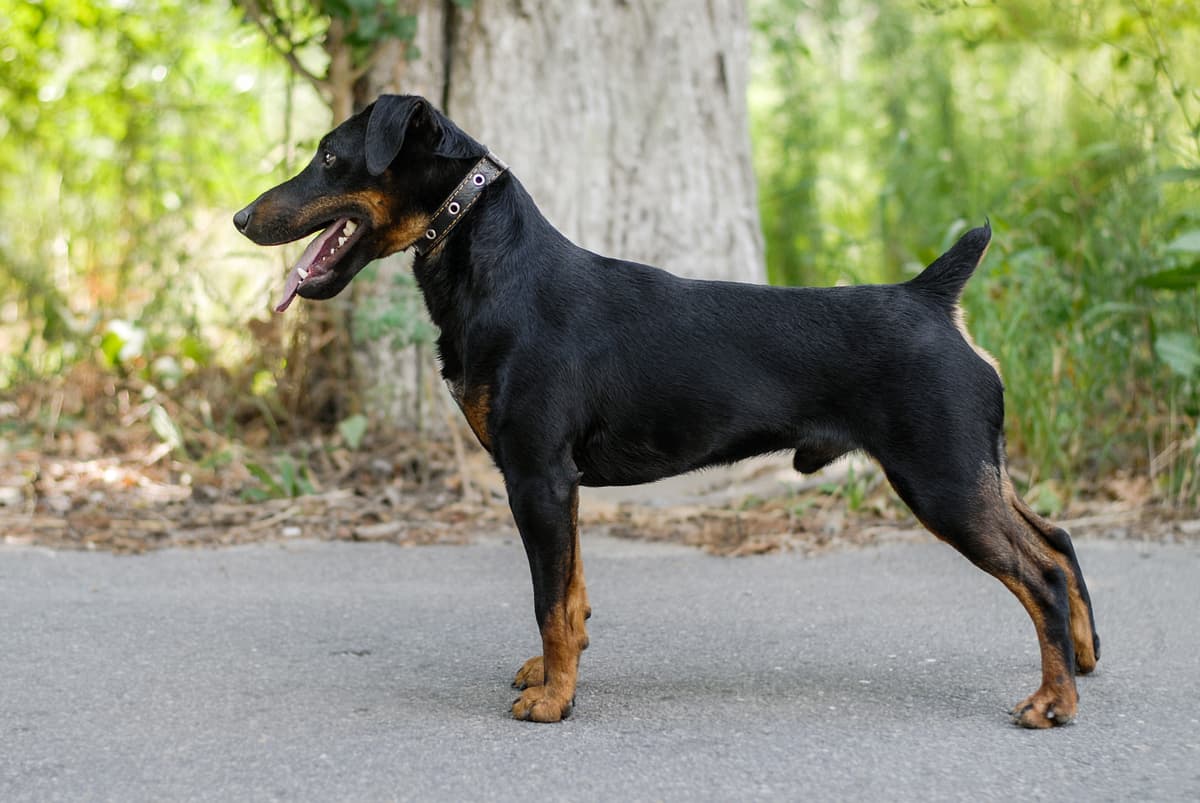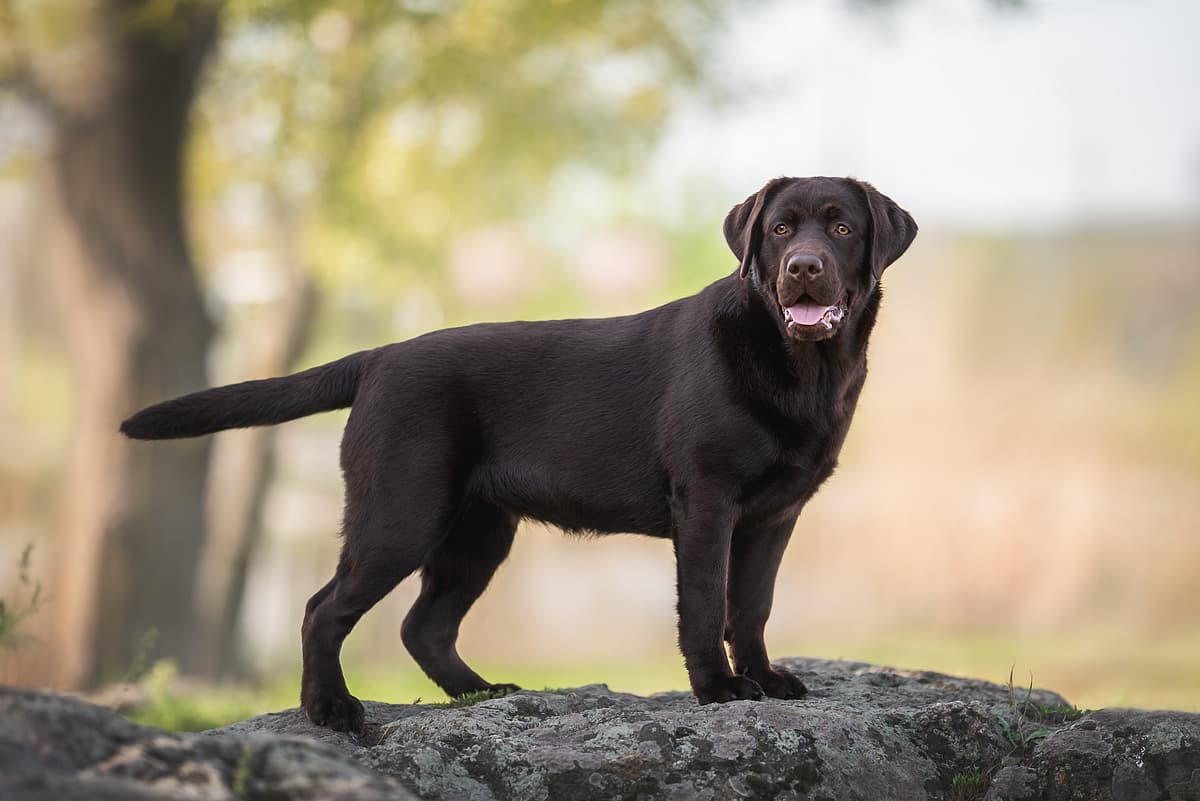German Hunting Terrier vs Labrador Retriever
Discover the differences between German Hunting Terrier and Labrador Retriever to make the best choice for your situation.
Try different breeds

German Hunting Terrier
Energetic, courageous, and determined, this compact terrier thrives on adventure and excels as an enthusiastic hunting partner. Known for unwavering loyalty and a spirited, confident personality.

Labrador Retriever
Eager, friendly, and intelligent, this breed loves being part of an active family. Their gentle nature and loyalty make them outstanding companions for all ages.
Quick comparison
Small
9–10 kg
Dense, harsh
10–12 years
7.5–8.5 kg
High energy
Large
29–36 kg
Short double coat, water-resistant
10–12 years
25–32 kg
High energy
Personality & behavior
Compare the personality traits and behavioral characteristics of both breeds.
German Hunting Terrier
Reserved with strangers, loyal to family
Quick learner, responds well to training
Very active, needs regular vigorous exercise
Enjoys games and interactive activities
Adapts moderately to new environments
Labrador Retriever
Warm and sociable with people and animals
Quick learner, responds well to training
High stamina, enjoys active pursuits daily
Loves games and interactive activities
Adjusts easily to new situations and environments
Care needs
Exercise, grooming, and daily care requirements
German Hunting Terrier
Eye disorders, patellar luxation
Labrador Retriever
Hip dysplasia, elbow dysplasia
Suitability
How well each breed fits different living situations and families
German Hunting Terrier
Challenging for beginners
Needs experienced, consistent training and handling to thrive
Not recommended
High energy and barking may disturb neighbors in small spaces
Excellent match
Thrives with vigorous activity and daily challenges
Use caution
High prey drive and intensity can overwhelm small children
Needs careful supervision
May show aggression toward other pets without early socialization
Poor fit
Suffers from boredom and destructive behavior when left alone too long
Labrador Retriever
Great choice
Patient and eager to please, Labradors are manageable for most first-time owners.
Not ideal
Labradors need space and exercise, so apartments can limit their activity needs.
Perfect fit
High energy and stamina make them excellent for active individuals or families.
Highly suitable
Gentle temperament and playful nature make them safe and loving with young children.
Very friendly
Generally sociable and get along well with other dogs and pets.
Prone to anxiety
Extended alone time can lead to boredom and destructive behaviors in this breed.
Breed strengths
What each breed excels at and their best qualities
German Hunting Terrier
- Highly skilled in scent tracking
- Strong prey drive for hunting tasks
- Loyal and protective with family
- Agile and energetic for outdoor activities
- Adaptable to various environments
Labrador Retriever
- Friendly and sociable with people and dogs
- Highly trainable and eager to please
- Excellent with children and families
- Strong retrieving and swimming abilities
- Generally adaptable to various living situations
Challenges & considerations
Potential challenges and considerations for each breed
German Hunting Terrier
- Needs extensive daily physical exercise
- Can be aggressive toward other animals
- Prone to digging and escape attempts
- Requires consistent, firm training approach
- May become vocal without enough stimulation
Labrador Retriever
- Prone to obesity without portion control
- Can become destructive if under-exercised
- Heavy seasonal shedding requires regular grooming
- May develop hip or elbow dysplasia
- Needs significant daily physical activity
Ready to choose your perfect breed?
Learn more about each breed or compare other breeds to find the perfect match for your lifestyle.
Discover more helpful tools
Make use of our other free tools to get the most out of your pet experience
